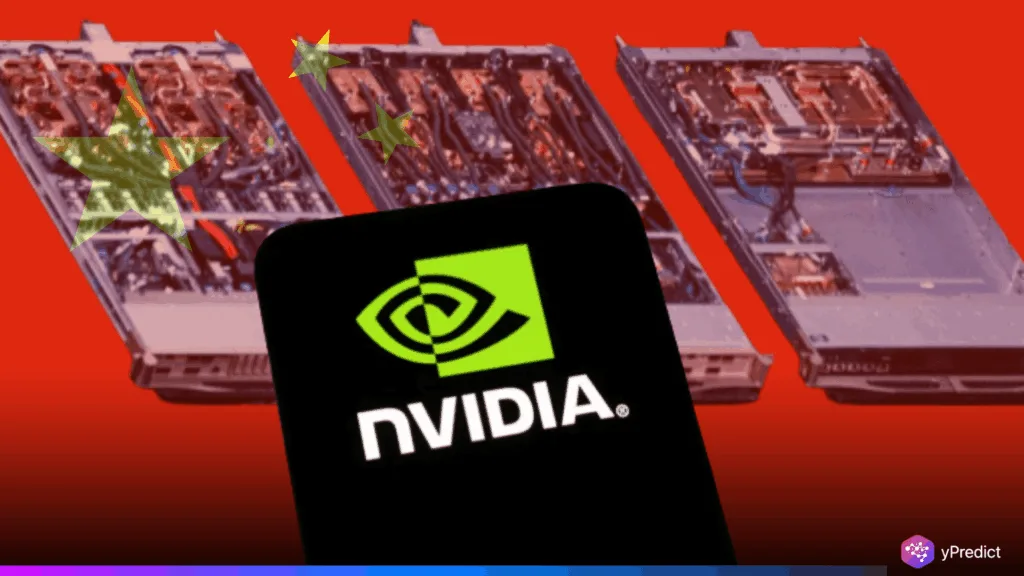
China’s state media have questioned the safety of Nvidia H20 chips, warning consumers of potential risks. Tensions between the U.S. chipmaker and Beijing surfaced after the government criticized the AI hardware for supposed backdoor access.
Officials have also raised concerns about the technology’s environmental performance, degree of innovation, and security. Nvidia, a major force in the global semiconductor market, has denied that any backdoors exist. Thus, the dispute now threatens the future of U.S. chip sales to China and also market trust.
Beijing Challenges Safety Standards of Nvidia H20 Chips
A Chinese state broadcaster-affiliated social media account has advised customers against buying the H20 model. The post claimed that the hardware lacked advanced features, was risky, and wasn’t up to green standards. Additionally, the announcement came just days after Nvidia was asked to clarify its position before Beijing’s cybersecurity authorities.
Researchers are looking into the possibility that these chips might enable control features like “remote shutdown” without the user’s consent. If verified, such characteristics might present serious risks to important infrastructure’s AI security. Therefore, the watchdog has put pressure on Nvidia to present thorough proof that there are no such vulnerabilities.
U.S. export limitations restricted access to advanced AI products, which caused the development of the H20 series for China. Furthermore, the chip market has responded cautiously to these accusations despite those changes, with buyers awaiting more information.
Will Public Doubt Further Damage Nvidia’s Image?
Chinese outlets have questioned Nvidia’s claims about chip safety yet again. People’s Daily recently urged the company to provide verifiable proof to rebuild trust. Critics also claim that unsupported security claims won’t persuade apprehensive consumers.
Beijing’s efforts to ensure that imported technology satisfies stringent domestic safety standards are in line with the comments. Experts also believe it is part of China’s broader strategy to expand its semiconductor industry. The global AI market is under increasing pressure, and these disputes could delay cross-border hardware projects.
Nvidia H20 Chips Face Uncertain Global Future
Nvidia insists that there are no backdoors in its hardware that would allow unwanted access. The company insists that all features are fully accessible to the user and adhere to safety standards. Global chipmakers may be subject to more stringent independent audits as a result of the controversy surrounding AI security. Additionally, this change may slow the introduction of AI hardware in highly regulated markets and change approval procedures.
Nvidia H20 Chips Controversy Could Reshape Chip Trade
The debate over Nvidia H20 chips shows that trust is now the primary factor driving the adoption of AI hardware. China’s official investigations and public criticism have put the company in a precarious position in a crucial market.
Furthermore, the American impact may be diminished if consumers choose domestic options due to ongoing worries about AI security. The ongoing volatility in the chip market puts price, innovation, and production cycles at risk.






